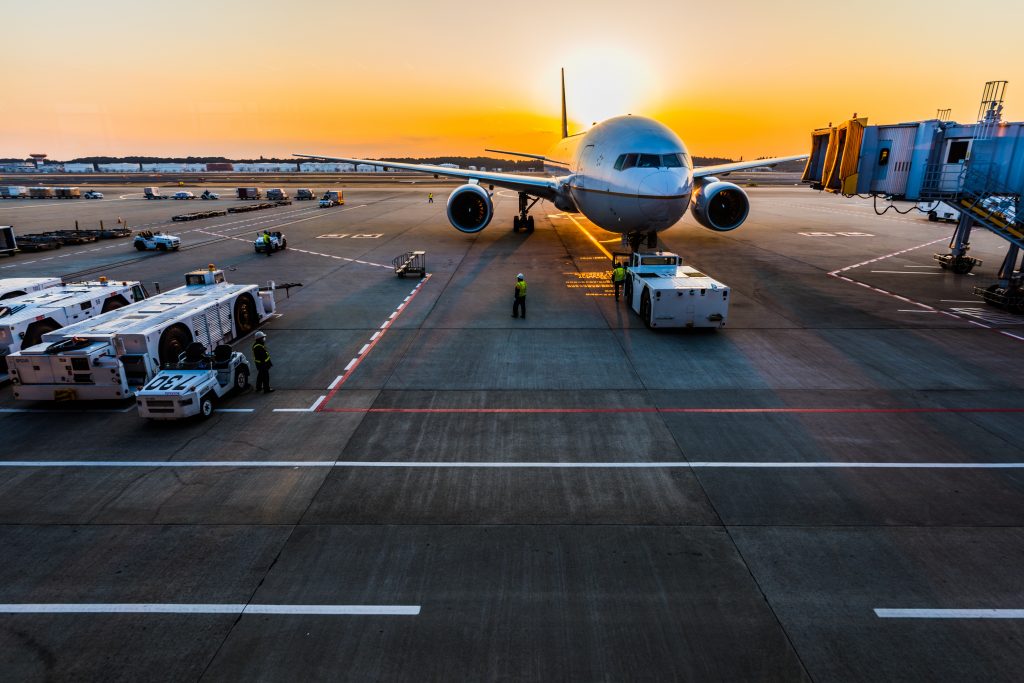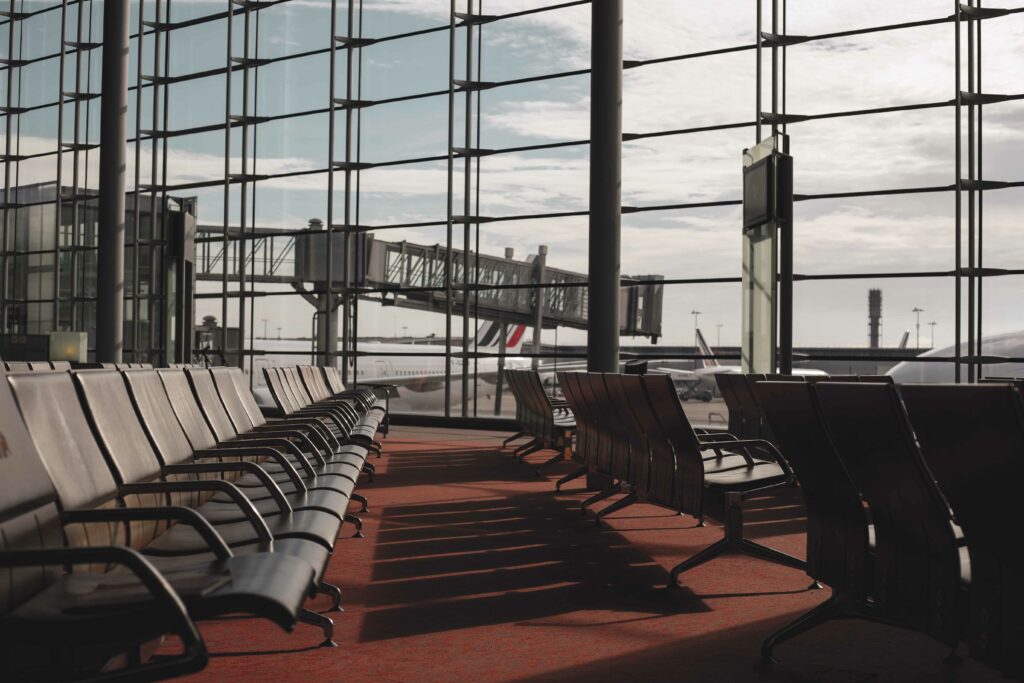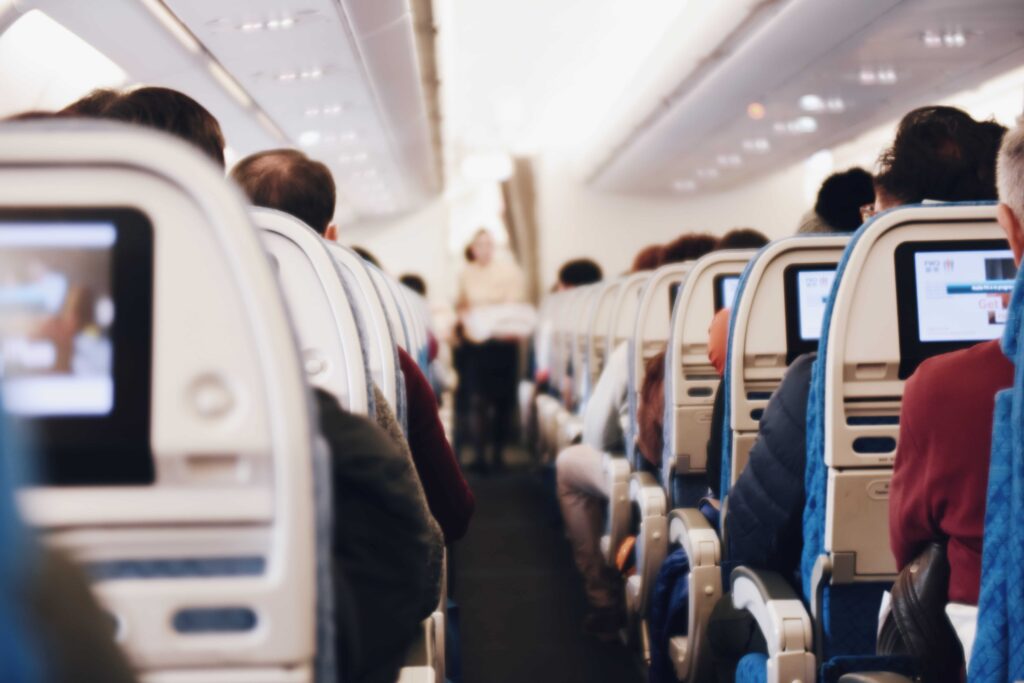Should airports’ financial losses resulting from COVID-19 be recovered by increasing airport charges?
"Events such as the COVID-19 pandemic cause disruptive financial losses in the airport sector and would therefore not be part of a normal business cycle. Insofar economic regulation does not compensate for this in exceptional circumstances like these, transferring airport losses to airlines may, from a regulatory point of view, be considered" argues Ernst-Jan Heuten, Economist at the Office of the Chief Economist of the Netherlands Authority for Consumers and Markets (ACM), in his recent opinion piece where he reflects upon the discussions of the 18th Florence Air Forum.
This article by Ernst-Jan Heuten, Economist at the Office of the Chief Economist of the Netherlands Authority for Consumers and Markets (ACM), originally appeared in the European Transport Regulation Observer “Towards Resilient and Sustainable Aviation: Implications for Competition and Competitiveness” (December, 2022).
Many airports have suffered considerable financial losses in the aeronautical segment during the COVID-19 crisis. Transferring these losses could result in a sudden and substantial increase in airport charges. Should these losses be recovered by increasing airport charges?
In January 2022, the Thessaloniki Forum of airport-charge regulators adopted a paper that provided recommendations on this for airport charge regulators.[1] The recommendations are predominantly based on standard regulatory economic principles and the instruments that may be available in a regulator’s toolbox. In practice, the regulatory approach to airport charges and the instruments available depends on the relevant provisions in the national laws of individual EU member states, which may differ from the options mentioned in this article or the paper.
These recommendations are as follows. The financial losses resulting from the pandemic are a demand-side risk. Shareholders of price-regulated undertakings receive a risk compensation for their price-regulated activities in the form of a regulatory WACC. For this reason, it is, in principle, appropriate to transfer the demand-side risk to the shareholders. Demand-side risk should, by default not be transferred to users by increasing charges.
It can be argued that economic regulation was only designed for normal economic cycles in which the economic profits and losses broadly cancel each other out over the medium term. Events such as the COVID-19 pandemic cause disruptive financial losses in the airport sector and would therefore not be part of a normal business cycle.[2] Insofar economic regulation does not compensate for this in exceptional circumstances like these, transferring airport losses to airlines may, from a regulatory point of view, be considered.[3] By considering such a transfer, guidelines should be used that are as close as possible to the regulatory economic principal premise of maintaining general economic incentives that stimulate efficient operation. The Forum elaborates on this further in the form of two types of recommendations:
Recommendations to determine what losses are potentially eligible for compensation by increasing charges:
- The financial losses that have been reported by the airport may be unnecessarily high. Regulators may take into account the fact that some costs have been saved or could have been avoided by the airport. In addition, government financial aid could be taken into account before considering transferring costs to customers by increasing airport charges.
- For example, individual tangible fixed assets may, technically speaking, be indivisible, yet economically speaking, they are not. In exceptional situations such as COVID-19, where the annual activity level has dropped dramatically, depreciation costs of these assets could be treated as a per-unit cost instead of depreciating by, for example, a fixed amount independent of its actual use over a certain period of time. The allocation of the regulatory depreciation costs in the charges could also be postponed.[4] Both of the aforementioned solutions still, in principle, allow airports to recoup their investment costs in the long term.
Recommendations on the passing on of financial losses via airport charges:
- If loss compensation is considered, regulators could assess whether the determined financial losses as a result of the crisis would have an unacceptable negative impact on the airport’s financial sustainability (long-term or otherwise), taking into account shareholders’ responsibility.
- Whenever loss compensation is allowed, demand-side risk can only be partially passed on to users. This is to ensure that the airport continues to look for opportunities to save costs as much as possible. Not being allowed to pass on all losses will further incentivise airports and their shareholders to prioritise investments. In addition, the pandemic causes extra uncertainty about the future and partial passing on stimulates airports to be cautious about starting new investment projects.
- Any cost-recovery or turnover-recovery mechanism should take into account its impact on traffic recovery. For that reason, the Forum recommends spreading the recovery over a certain period of time (5 to 7 years). Such a time period could depend on the financial amounts to be recovered.
- Risk may be shared via the settlement of turnovers. In exceptional circumstances, any negative and positive differences in turnover above and below a certain threshold as a result of differences between projected and actual traffic volume may be shared between airports and airlines. By applying a certain threshold, a part of the risk remains with the airport, which encourages the airport to take measures to mitigate the negative financial effects of a crisis.
Are the Forum’s recommendations on this also useful if the crisis takes on a more permanent dimension? At the time of writing this article, it is uncertain how long the pandemic will last or to what extent it may return. It cannot even be ruled out that the crisis may lead to a long-lasting and more structural decline in demand for aviation services. If more permanent scenarios were to become a reality, some of the assets may have to be removed from the asset base dedicated to their original activities or a one-time depreciation of the book value, and a corresponding reduction of the remaining yearly depreciation cost could have to be made.
*In 2021 Ernst-Jan Heuten chaired the Thessaloniki Forum expert group on airport charges. He wrote this article in a personal capacity. This article cannot be interpreted as a judgment in specific cases.
[1] See: Thessaloniki Forum on airport charges: Airport charges in times of crisis, adopted January 27th 2022.
[2] For these insights, see also the Brattle Group, risk and return for regulated industries, Elsevier Academic press, 2017, page 227.
[3] In some specific regulatory regimes, on the basis of the regulatory-design premises, the regulated undertaking bears no demand-side risk. In these systems, revenue-cap regulation is applied, where an allowed revenue is determined. These systems are not discussed in this article or the Forum’s paper.
[4] For these kinds of solutions, see also Frontier Economics: A regulatory flight-path to airport recovery, page 5, Oxera: Post-COVID airport regulation: a clear path?, March 2021 page 1.”






